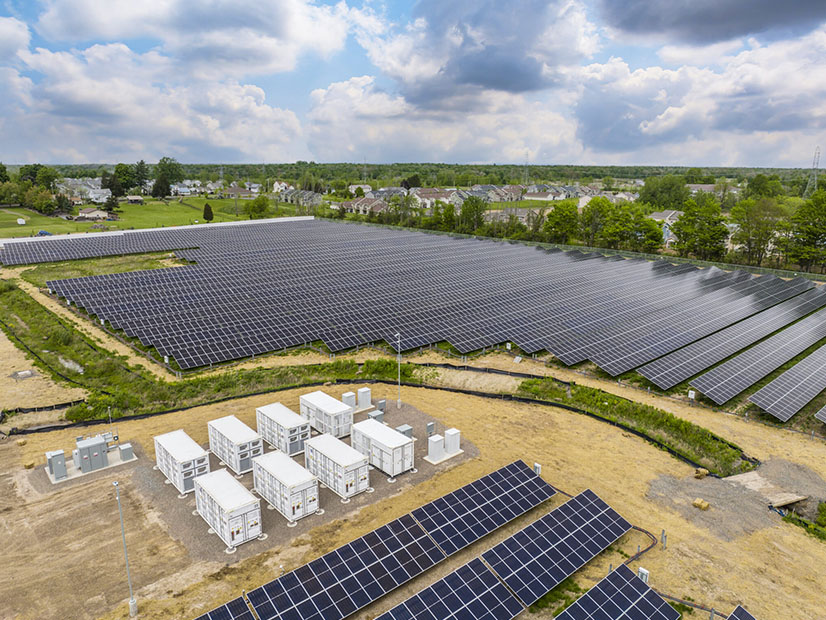The Rhode Island Energy Facility Siting Board (EFSB) ruled Oct. 3 that it has jurisdiction over large battery storage projects, overruling precedent and giving the board the ability to override local permitting decisions on storage projects if it deems a project has met all the legal requirements (SB-2024-01).
In April, the Quonset Development Corp. (QDC) requested the EFSB declare a proposed 210-MW battery project is outside the board’s jurisdiction, arguing the EFSB has determined “it does not have jurisdiction over battery energy storage systems.”
The prior precedent stems from a 2019 EFSB ruling that a 180-MW storage resource is not under the jurisdiction of the board because the state’s Energy Facility Siting Act does not reference battery storage (SB-2019-02).
QDC also argued the EFSB does not have jurisdiction over a substation, tie line and switchyard needed to connect the battery to the transmission system, writing that the 115-kV tie line “is not a transmission line” and instead is “a line that connects a non-generating battery energy storage system for the purpose of storing and discharging electricity.”
The EFSB wrote in its ruling the question of jurisdiction hinges on “whether the project itself or any component thereof falls within the definition of a ‘major energy facility,’ as defined by the Energy Facility Siting Act.”
The definition includes “facilities for the generation of electricity designed or capable of operating at a gross capacity of forty (40) megawatts or more.”
While QDC argued this definition does not apply to battery storage, the EFSB disagreed, highlighting language from ISO-NE and FERC that categorizes battery storage as a type of generation.
“It would be illogical for the state and federal definitions to collide with each other, especially when the energy industry is inherently interstate in nature and Rhode Island is inextricably dependent upon the regional electric system for continuous reliable service,” the EFSB wrote.
Regarding the precedent set by its 2019 ruling, the EFSB wrote that it “respects the importance of following the reasoning of prior cases and adhering to settled rules,” but added it ultimately is “not bound by its prior decisions and can depart from its own precedents, as long as the agency explains why such a departure is reasonable.”
The EFSB also highlighted the implications the ruling could have on the state’s clean energy goals. This year, Rhode Island set a target of installing 600 MW of storage by the end of 2033; the project at issue in the ruling would meet over a third of this goal. (See RI Sets 600-MW Energy Storage Target.)
While no local permits would be required for this project, which would be in an industrial park, local permitting could pose “an insurmountable obstacle” for future battery projects in the absence of EFSB jurisdiction, the board wrote. The EFSB can overrule local permitting decisions for projects under its authority.
The EFSB similarly found that it has jurisdiction over the infrastructure needed to connect the battery facility to the transmission grid.
“Given the numerous FERC cases unambiguously illustrating that generator tie lines are jurisdictional transmission facilities, the claim made by petitioner that the 115-kV Generator Tie Line is not serving a transmission purpose is contradicted by FERC precedent and, therefore, is unsustainable,” the EFSB found.
It added that a lack of EFSB jurisdiction over interconnection infrastructure “could have been devastating to the ability of an offshore wind developer in the future to interconnect its project to the transmission system within or through Rhode Island, given the potential for local opposition.”
The EFSB said the project developer must submit an application for the battery facility and its associated electric infrastructure.




